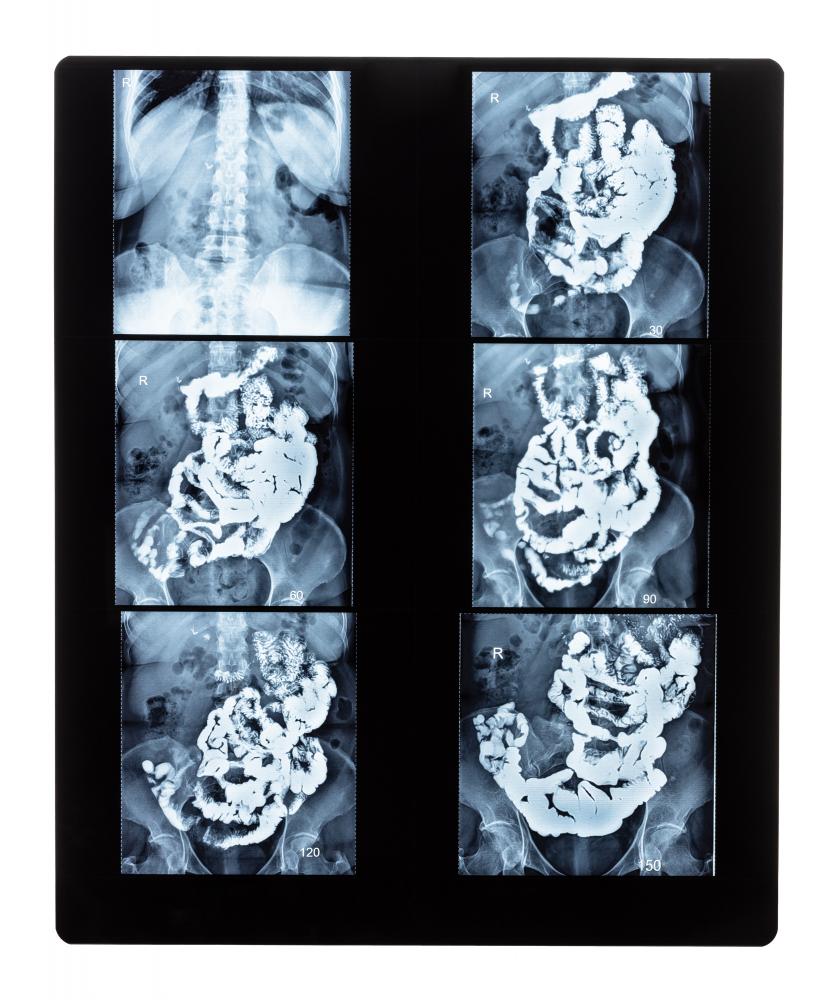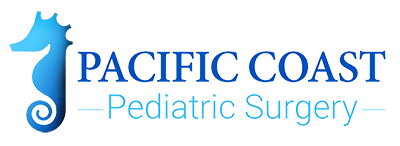Table of Contents
Understanding Hirschsprung Disease

Imagine the anguish a parent feels when their newborn is unable to have that first, critical bowel movement. At Pacific Coast Pediatric Surgery, I’ve seen the worry in their eyes turn to relief as we navigate through the complexities of Hirschsprung Pediatric Surgery. Hirschsprung disease is a congenital condition marked by the absence of nerve cells in the muscle of parts of the colon, which can cause severe constipation or intestinal blockage. It’s a condition I’ve grown all too familiar with, dedicating a significant portion of my practice to understanding and treating this complex disorder.
Identifying Hirschsprung disease usually begins with a keen observation of symptoms – an infant’s failure to pass stool within the first two days of life can be a telltale sign. Diagnostic procedures, such as rectal biopsies and contrast enemas, are typically deployed to confirm the presence of the condition. But the jargon and technicalities can often be overwhelming for parents, so my job is to translate medical speak into a language ridden with hope, clarity, and support for the families I serve.
Personalizing the Treatment Approach
Every case of Hirschsprung Pediatric Surgery is a journey – no two children are the same, and as such, the approach must be tailored to meet the individual needs of each patient. The cornerstone of treatment is the surgical removal of the affected sections of the colon, but the extent to vary vastly. For some, this involves a multi-stage process with temporary stomas, while others may only require a single procedure. The key is finding what works best for the child and the family.
As much as the illness is physiological, the emotional ramifications cannot be ignored. Surgery, especially on one so young, can be a trying experience. My personal encounters with serious illness in the family have taught me to handle each case with a blend of professional expertise and empathetic care. I often assure parents that their little ones are in hands that will treat them with the same attention and gentleness as I would my own children.
Within the OR, my team and I take to the task with an intricate blend of precision and concern. We leverage minimally invasive techniques whenever possible, and I’ve seen firsthand the benefits these approaches have on recovery times and overall outcomes. It’s not just about performing a procedure; it’s about ushering these children into a healthier future.
Navigating Post-Operative Care
The journey through Hirschsprung Pediatric Surgery doesn’t end when the child leaves the operating room. Post-operative care is paramount in ensuring a smooth transition to normalcy. It involves a comprehensive understanding of stoma care, recognizing symptoms of enterocolitis, and managing frequent stools that follow surgery. But we don’t expect families to navigate these waters alone; our compassionate nursing team provides meticulous guidance every step of the way.

Post-surgery, children may face unique challenges such as constipation or incontinence, and they may require additional interventions like anal dilations. We equip parents with the know-how to carry out these procedures at home, which, while initially daunting, become a manageable part of their routine. A well-designed bowel management program might also be necessary, ensuring the child achieves the best functional outcome and quality of life possible.
Of course, emotional support plays a vital role in recovery. Parents often share their anxieties and fears, a natural response to their child’s condition. During these moments, we offer a listening ear and a reassuring presence. My involvement with non-profit surgical missions has taught me the unsurpassed value of compassionate care, and I strive to bring that same sensitivity to every family I encounter.
Advancing Hirschsprung Care
Innovation in Hirschsprung Pediatric Surgery is ongoing, and at Pacific Coast Pediatric Surgery, we’re committed to implementing the latest research to improve patient outcomes. The exciting field of pediatric surgery is ever-evolving, and with each advancement, we can offer new hope to families grappling with this diagnosis.
Through my participation in surgical missions and my close work with anorectal malformations, I’ve had the opportunity to both share and gain valuable insights that inform the care we deliver. Our practice thrives on a collaborative approach, always seeking better, less invasive ways to address the surgical needs of newborns and children. It’s a pursuit that requires constant learning, adapting, and above all, a deep-seated desire to see our young patients thrive.
At the end of the day, Hirschsprung Pediatric Surgery is more than just a procedure; it’s a pathway to a new life for children and their families. And in this journey, Pacific Coast Pediatric Surgery stands as a relentless ally, armed with skill, dedication, and unwavering compassion.
Understanding Hirschsprung Disease in Children
At Pacific Coast Pediatric Surgery, we recognize that Hirschsprung Disease in Children poses unique challenges for both families and medical professionals. This congenital condition, marked by the absence of nerve cells in portions of the intestines, leads to severe constipation and intestinal obstruction. From the very first consultation, we strive to educate and engage parents in understanding how this disease affects their child’s digestive system and overall health.
Each child’s experience with Hirschsprung Disease in Children is distinct, with some displaying symptoms shortly after birth, such as a failure to pass meconium, and others not manifesting signs until later in childhood. In essence, the degree of nerve cell absence correlates directly to the severity of the symptoms. As a pediatric surgeon, I’ve seen firsthand the distress these symptoms can cause, not just in the child but the entire family. Our approach prioritizes a thorough diagnosis, often involving rectal biopsies and contrast enemas, to ensure an accurate portrayal of each child’s unique situation.
Beyond the clinical aspect, we at Pacific Coast Pediatric Surgery are aware that families need support and reassurance. Having experienced serious illness within my own family, I channel this empathy into every interaction, fostering a space where parents feel heard and supported. We believe that a strong support system is as crucial to the healing process as the medical intervention itself.
Surgical Interventions for Hirschsprung Disease
Surgery is often the cornerstone treatment for Hirschsprung Disease in Children. Typically, the affected segment of the bowel is removed, and a pull-through procedure is conducted to restore bowel function. Here at Pacific Coast Pediatric Surgery, we are dedicated to employing advanced, minimally invasive techniques tailored to the delicate needs of pediatric patients. Our mission is to ensure that the physical scars of surgery are as minimal as the emotional ones, allowing children to heal faster and with less discomfort.
Yet, surgery is not the end of the journey for many children. Postoperative care plays a pivotal role in the long-term outcomes for children with Hirschsprung Disease. Complications like constipation or enterocolitis can be commonplace, and it’s our duty to provide diligent follow-up care. This includes patient education on symptom recognition and management, ensuring families are equipped to handle potential complications with confidence.
In my clinical experience, I’ve observed that children with longer segments of the intestine affected by Hirschsprung Disease may face more complex challenges. Our treatment plans are not one-size-fits-all; they are nuanced and adaptive to the nuances of each child’s condition. It is a deeply personal commitment, ensuring that each little patient receives care that’s tailored and compassionate.
Aftercare and Support for Hirschsprung Disease
Recovery from surgery for Hirschsprung Disease in Children is a process that extends beyond the physical healing of incisions. It encompasses the careful monitoring of a child’s adaptation to their new digestive function and managing any resultant conditions such as chronic constipation or nutritional concerns. In our practice, we stress the importance of a multi-disciplinary approach involving gastroenterologists, nutritionists, and pediatricians to manage these complex needs.
The support, however, transcends the boundaries of our clinic. As part of our commitment to comprehensive care, we extend our support to include outreach to primary care physicians and the broader medical community. By doing so, we ensure that each child’s care network is robust and informed. If you have questions about the Nuss procedure, our pediatric hernia specialist Los Angeles can answer them for you during your next appointment.
Lastly, every family’s journey is personal and profound. Stories shared by parents, like Joy C. from Pasadena, reflect the deep bonds and trust formed throughout the treatment process. These testimonials reinforce our dedication to excellence in medical care and the personal touch we bring to each case of Hirschsprung Disease in Children. At Pacific Coast Pediatric Surgery, we are not just treating a condition; we are caring for a child, nurturing them back to health, and supporting families every step of the way.
Understanding Hirschsprung Disorder in Children
At Pacific Coast Pediatric Surgery, we often encounter families grappling with the complexities of Hirschsprung Disorder in Children. This condition, where nerve cells are absent in segments of a child’s intestine, can lead to severe constipation or intestinal blockages. For the uninitiated, envisioning the intestines without these essential nerve cells is akin to picturing a bustling city where suddenly all traffic lights go dark – the flow comes to a halt.
Our youngest patients may show the classic sign of failing to have a bowel movement within the first 48 hours of life. As a father and surgeon, I recall a particular case where a tiny newborn’s struggle evoked memories of my own child’s health challenges. It’s these personal connections that fuel our dedication to not only treating but truly understanding each child’s unique journey with Hirschsprung Disorder in Children.
Symptoms can evolve over time. Older children might present with chronic constipation, abdominal distension, or poor growth, signaling a prolonged struggle within their unseen cityscape. These manifestations beckon for timely intervention to restore their delicate inner harmony.
Diagnosis and Treatment Pathways
Diagnosing Hirschsprung Disorder in Children requires precision and care. At our practice, we utilize a combination of advanced tests, including contrast enemas and rectal biopsies. It’s like detective work, gathering clues to reveal the underlying issue. I recall the relief in parents’ eyes when we unfold the mystery of their child’s distress – it’s an unparalleled moment.
Once diagnosed, the treatment for Hirschsprung Disorder in Children is typically surgical. The pull-through procedure, where the affected intestinal segment is removed, offers a beacon of hope. I’m proud to say that our minimally invasive approach here at Pacific Coast Pediatric Surgery has not only reduced scarring but also led to faster recoveries, allowing children to return to their families’ embrace sooner.
Post-surgery, our work is far from over. We diligently monitor our young patients for signs of constipation or enterocolitis. The journey through recovery is not always linear; I’ve seen children face setbacks, but with individualized care plans and ongoing support, we strive for a future where they can thrive.
It’s a collaborative effort where our team, parents, and the resilient spirit of each child converge to overcome the hurdles posed by Hirschsprung Disorder in Children.
Long-Term Management and Support
Life beyond surgery for Hirschsprung Disorder in Children is a road we navigate together with families. Through our experience, we’ve learned that postoperative care is critical for long-term wellness. Nutritional support becomes paramount, especially for those who’ve had significant sections of their intestines removed. Our dietary recommendations are tailored, aiming to maximize each child’s growth and vitality.
Our commitment extends to the emotional well-being of our patients and their families. Having personally felt the weight of a child’s health crisis, I understand the importance of emotional support. We create an environment at Pacific Coast Pediatric Surgery where families feel heard, valued, and empowered as partners in their child’s healthcare journey.
For children with ongoing challenges such as constipation or incontinence, we offer innovative solutions like the Bowel Management Program. It’s one of the many ways we stay at the vanguard, continuously refining our strategies to better serve those affected by Hirschsprung Disorder in Children.
Every child’s story is different, and each victory, whether small or monumental, resonates deeply with our team. We celebrate the milestones with our patients, cherishing the privilege of being part of their narrative. Hirschsprung Disorder in Children is a complex foe, but with compassion, expertise, and unwavering resolve, it’s one we tackle head-on at Pacific Coast Pediatric Surgery.

What is the success rate of Hirschsprung surgery?
At Pacific Coast Pediatric Surgery, we take pride in the high success rate of Hirschsprung surgery, which reflects our commitment to exemplary care and the expertise of our surgical team. The majority of children who undergo surgery for Hirschsprung disease can expect to lead normal lives afterward. Success rates vary depending on the extent of the disease and the specific procedure performed, but most studies report success rates above 90%. It’s important to remember that successful outcomes involve not only the surgical procedure itself but also comprehensive postoperative care and a multidisciplinary approach to ensure the best possible quality of life for our young patients.
What is the recovery time for Hirschsprung surgery?
The recovery time following Hirschsprung surgery can vary from one child to another, depending on several factors such as the type of procedure performed and the child’s overall health. Typically, a stay of about a week in the hospital may be expected after a pull-through procedure. Once home, it may take several more weeks before the child fully recovers. We make sure to provide parents with detailed guidelines on care at home and are always ready to assist with any concerns they might have during this recovery period. It’s a collaborative journey, and we’re with our families every step of the way.
Is colostomy permanent in Hirschsprung?
While a colostomy may be a part of the initial treatment for some children with Hirschsprung disease, it’s often not permanent. In many cases, the colostomy is a temporary solution to relieve bowel obstruction and to prepare the child for a subsequent pull-through procedure where normal bowel function is restored. At Pacific Coast Pediatric Surgery, we understand that the idea of a colostomy can be daunting for parents, and we’re committed to providing support and education on stoma care. We aim to transition our patients to life without a colostomy whenever it’s medically appropriate and safe to do so.
What is the postoperative care for Hirschsprung disease?
Postoperative care following Hirschsprung surgery is critical for a smooth recovery and involves close monitoring for any complications, such as signs of enterocolitis or issues with the surgical site. At our practice, we emphasize the importance of correct stoma care if a colostomy is present, as well as guidance on diet and bowel management. The postoperative period also includes regular follow-up visits to assess healing and function. We believe in empowering our families with knowledge and skills, which helps in the transition to routine care at home and fosters a sense of normalcy in their lives.
How does Pacific Coast Pediatric Surgery provide emotional support to families dealing with Hirschsprung surgery?
Undergoing surgery, particularly for a child, is an emotional experience for a family. At Pacific Coast Pediatric Surgery, we not only provide the highest standard of medical care but also offer a compassionate and supportive environment. We understand the worries and uncertainties our families face, and we’re here to offer reassurance and a listening ear throughout the process. Our team is committed to treating each child and their family with the same warmth and concern we would show our own loved ones. By sharing personal anecdotes and experiences, we aim to connect with families on a deeper level, creating an atmosphere where emotional well-being is prioritized alongside physical healing.
Resources on Hirschsprung Disease
- Centers for Disease Control and Prevention (CDC) – Offers comprehensive information on a wide range of health conditions, including congenital diseases such as Hirschsprung disease. CDC Hirschsprung’s Disease
- National Institute of Diabetes and Digestive and Kidney Diseases (NIDDK) – Provides detailed educational resources on digestive diseases, including Hirschsprung disease. NIDDK on Hirschsprung’s Disease
- Genetics Home Reference – U.S. National Library of Medicine – Offers information on genetic conditions and the genes or chromosomes associated with them, including educational material on Hirschsprung disease. Genetics Home Reference
- American Pediatric Surgical Association (APSA) – Provides professional guidelines and patient resources for pediatric surgical conditions, including Hirschsprung disease. APSA Hirschsprung’s Disease
- Hirschsprung’s Disease & Allied Disorders (HDAD) – A non-profit organization dedicated to supporting those affected by Hirschsprung disease, offering information, resources, and a community for families. HDAD Association
- MedlinePlus – U.S. National Library of Medicine – Provides health information from the world’s largest medical library, including resources on many diseases and conditions, such as Hirschsprung disease. MedlinePlus on Hirschsprung’s Disease
- International Foundation for Gastrointestinal Disorders (IFFGD) – A source of reliable digestive health knowledge, resources, and support, with educational material on functional GI and motility disorders, potentially relevant for those with Hirschsprung disease. IFFGD
- Rare Diseases Clinical Research Network (RDCRN) – Aims to advance medical research on rare diseases by providing information and supporting collaborative research efforts. RDCRN

